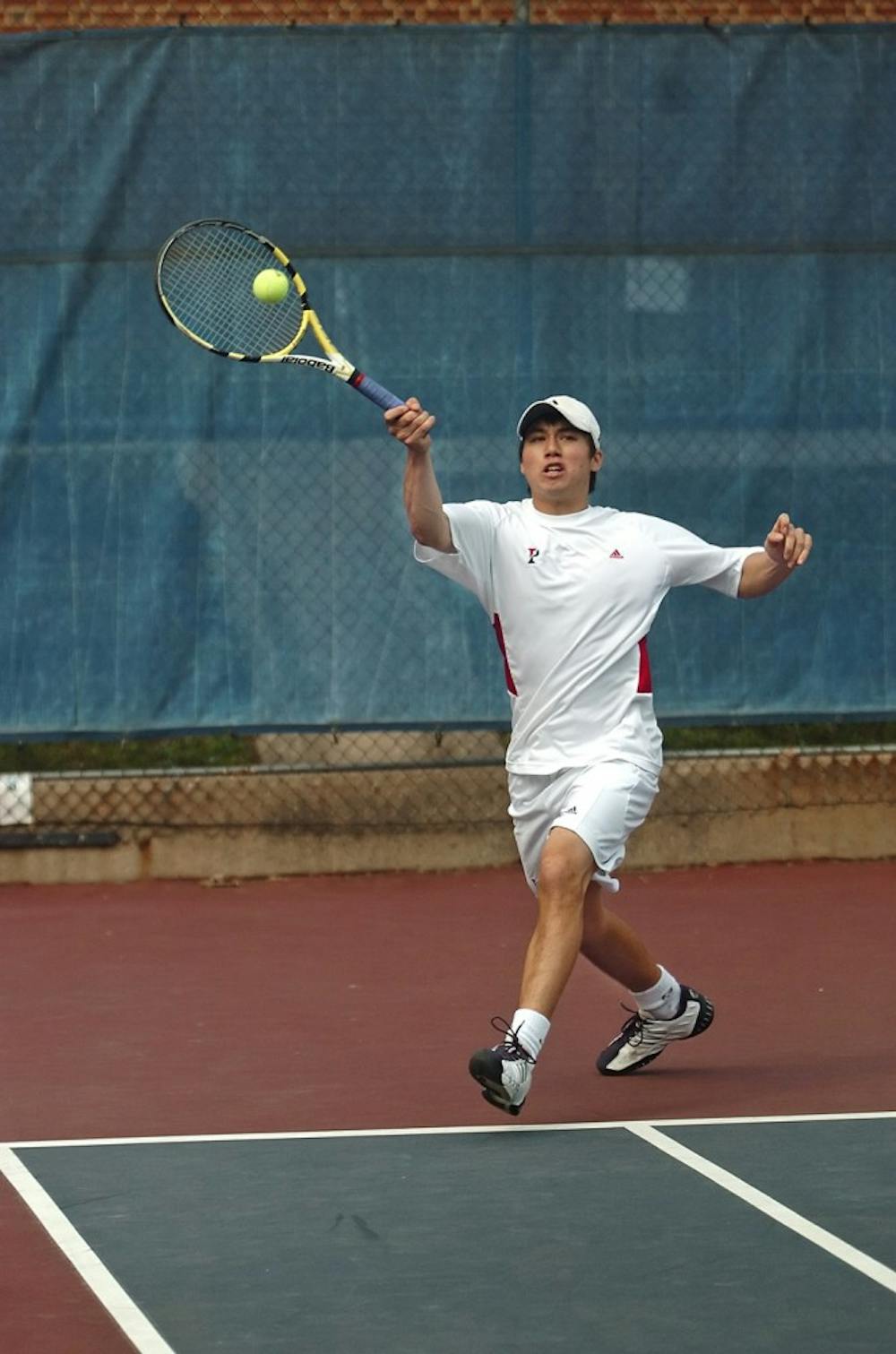While most eagerly await the arrival of spring in Philadelphia, nice weather has been an obstacle for the Penn men’s tennis team.
The Quakers are 7-1 indoors this season but only 3-4 outdoors.
With both of their matches this weekend against Brown and Yale expected to be played outdoors, Penn must get used to playing in the sun if they hope remain in contention for the Ivy League title.
“The courts indoors are slower and that fits our game style,” sophomore Phil Law said. Slower courts often favor baseline grinders, whereas faster courts favor players with bigger serves and groundstrokes.
The fact that Penn’s normal starting lineup includes six East Coast players out of eight also plays a role.
“The players from the East Coast are a lot more comfortable indoors,” Law, an Alberta, Canada native, said. “The guys from California, Eugen [Brazdil] and Jason Lin, are better outdoors.”
Another difference between indoor and outdoor tennis is the “fan factor,” as more fans typically come to outdoor matches than indoor matches, which can be both a plus and a minus.
“It is a nicer atmosphere, but there can be a lot more distractions,” Law said.
But while the transition to outdoor courts has impacted the Quakers in recent matches — they have lost five of their last seven matches after winning their first eight games of the season — the team has also been plagued by inconsistent doubles play.
In all five of the Quakers’ losses, they have lost the doubles point, and they have only won once this season after losing in doubles.
If the doubles point is as important as statistics indicate, the Quakers are in trouble Friday against Brown (10-9), a team that is known for its strength at doubles.
But Law believes that the fact that Brown is heavily favored to win the doubles point takes the pressure off Penn.
“By winning one or two of the doubles matches, it is going to give us a lot of momentum.”
A key factor that has led to instability has been constant changes to the lineup. Although the main change has been the rotation between seniors Justen Roth and Jeff Karsh and freshman Mark Milbrandt at the sixth singles position, coach Nik DeVore often experiments with his doubles teams.
“It comes down to who on our team has the best matchup and who’s playing who, ” Law said.
Despite inconsistent results, the sophomore believes that the lineup shuffles have been largely warranted as they allow the team to make the best use of their depth.
“Everyone on our team can beat everyone,” Law said. “Our number eight guy can contend with our number one.”
The Quakers will need to find the right combination this weekend as their games against Brown and Yale will greatly impact their Ivy finish — especially after they dropped their opener to Princeton.
“We just have to keep [the loss to Princeton] in perspective and give it everything we’ve got,” Law said.



